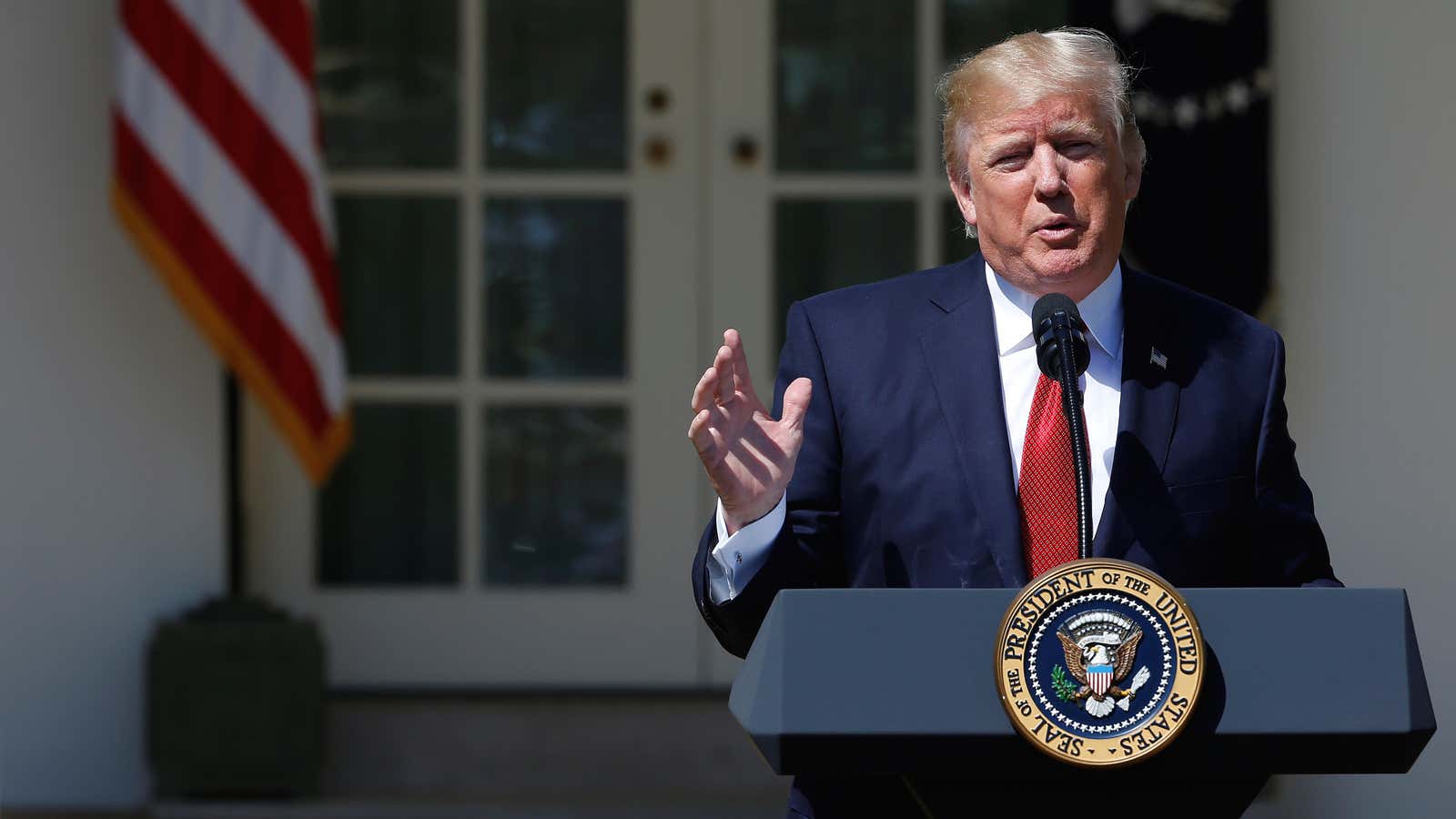It’s no secret that little love is lost between US president Donald Trump and the mainstream American press. CNN, BuzzFeed, The New York Times, Vanity Fair—few big-name titles have escaped the wrath of the Donald, who, measurably more so than his predecessors, is acutely sensitive to criticism lobbed from the Fourth Estate.
“Fake news” has become the go-to dismissal of any story even vaguely inquisitive into White House operations, strategy, or motive. And although, on its face, it’s a transparently juvenile tactic, one legal expert thinks it could come back to bite our thin-skinned commander-in-chief.
But the rhetoric, of late, has veered into more seriously concerning waters. On Feb. 17, little less than a month after taking office, president Trump unilaterally declared the mainstream media a collective “enemy of the American people.”
Joining Slate’s Jacob Weisberg for his “Trumpcast” podcast on Apr. 11, Harvard Law School professor Noah Feldman suggested that the president could potentially face impeachment for his “subtle, careful, slow undercutting of press freedom.”
This might be mystifying to anyone familiar with how impeachment, in the US system, actually works. Under Article II, Section 4 of the Constitution, a president may be impeached for “treason, bribery and other high crimes and misdemeanors.” As of now, it is no high crime or misdemeanor (or even a low to middling crime) to complain on Twitter, however childishly, about critical press coverage of oneself.
“I’m not talking about criminalizing the president’s actions,” Feldman counters. “I’m talking about holding him accountable, and holding him accountable under the rubric of impeachment.”
And indeed, he has some legal scholarship on his side. Constitutional lawyer and historian Kevin R. C. Gutzman argues that “high crimes and misdemeanors” should be understood in the lingo of the era in which it was written, with respect to 18th century English parliamentary law. Impeachment does not hinge on commission of classifiable crimes, he argues, but violation of “grave matters of state,” i.e., abuses of power, under which purposeful manipulation of the press arguably fall.
Feldman likely agrees with Gutzman’s assessment, insisting to Weisman that the true function of impeachment “at the deepest level” is for Congress to exercise its own separated power—“to express its beliefs about what the right way to be president is, with respect for democracy and rule of law.” And he believes Trump’s “fake news” stratagem is intended erode these very concepts: “to curtail press freedoms, to frighten the press, especially through corporate pressure, into ceasing to be effective critics.”
But beyond his more generous interpretation of the articles of impeachment, Feldman’s case depends on a more practical factor: Congress’s partisan makeup. Republican lawmakers have proven themselves unwilling to condemn some of Trump’s even more identifiably unconstitutional behavior. And with impeachment depending on the House to file charges and two-thirds of the Senate to convict, a Trump ouster under the current legislative regime is highly unlikely. Hopefuls, however, can look ahead to 2018. The Democrats need 24 seats to retake the House—a stretch to be sure. But a lot can happen in two years. And four and six.
